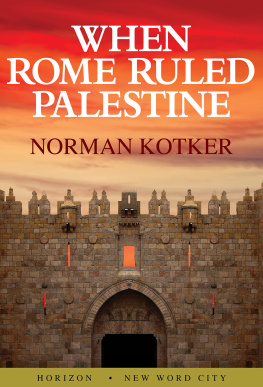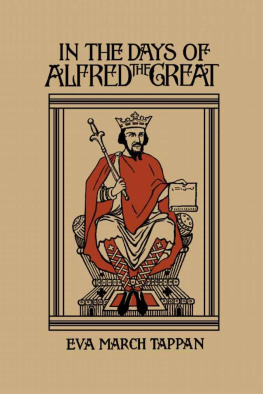The Rainborowes
THE
RAINBOROWES
ONE FAMILYS QUEST to BUILD
a NEW ENGLAND
Adrian Tinniswood
BASIC BOOKS
A MEMBER OF THE PERSEUS BOOKS GROUP
New York
Copyright 2013 by Adrian Tinniswood
Published by Basic Books,
A Member of the Perseus Books Group
All rights reserved. No part of this book may be reproduced in any manner whatsoever without written permission except in the case of brief quotations embodied in critical articles and reviews. For information, address Basic Books, 250 West 57th Street, 15th Floor, New York, NY 10107.
Books published by Basic Books are available at special discounts for bulk purchases in the United States by corporations, institutions, and other organizations. For more information, please contact the Special Markets Department at the Perseus Books Group, 2300 Chestnut Street, Suite 200, Philadelphia, PA 19103, or call (800) 810-4145, ext. 5000, or e-mail .
Designed by Timm Bryson
Library of Congress Cataloging-in-Publication Data
Tinniswood, Adrian.
The Rainborowes : one familys quest to build a new England / Adrian Tinniswood.
pages cm
Includes bibliographical references and index.
ISBN 978-0-465-06996-5 (e-book) 1. Rainborowe family. 2. Great BritainHistoryCivil War, 16421649. 3. MassachusettsHistoryNew Plymouth, 16201691. 4. MerchantsGreat BritainBiography. 5. Great BritainBiography. 6. Pilgrims (New Plymouth Colony)Biography. I. Title.
DA419.A1T56 2013
929.20973dc23
2013011961
10 9 8 7 6 5 4 3 2 1
For my wife
TWO WORLDS.
ONE DREAM.
A NEW ENGLAND.
CONTENTS
Ive encountered more than a dozen spellings of Rainboroweeverything from Rainbow to Rainsborough to Raynesburrow. I have settled on Rainborowe because this is how the Rainborowes always spelled their name. It seems presumptuous to correct them.
PREFACE:
THEIR EARTHLY CANAAN
It started, as these things often do, with a couple of lines in someone elses book.
I was leafing through an old edition of John Winthrops journal of the beginnings of the Massachusetts Bay Colony when I came across this entry from 1645, three years into the English Civil War: Mr. Israel Stoughton, one of the magistrates, having been in England about merchandize, and returned with good advantage, went for England again the last winter, with divers other of our best military men, and entered into the parliaments service. Mr. Stoughton was made lieutenant colonel to colonel Rainsborow, Mr. Nehemiah Bourne, a ship carpenter, was major of his regiment, and Mr. John Leverett, son of one of the elders of the church of Boston, a captain in a foot company.
I already knew a little about the Rainborowe family. The father, William Rainborowe, was a powerful figure in English naval circles in the 1630s, an adviser to Charles I, and the leader of a spectacular raid to free captives from a Moroccan pirate base in 1637. His eldest son, Thomas, the colonel Rainsborow in Winthrops journal, was well known to students of the English Civil War as a brilliant siege commander on the parliamentarian side and a man of advanced political views. His passionate speech in favor of universal male suffrageI think that the poorest he that is in England hath a life to live as [much as] the greatest heis frequently quoted as a landmark in English political history. But why should a bunch of New Englanders, a merchant, a shipwright, and the son of a church elder, travel 3,000 miles to fight for Thomas Rainborowe? Was the English Revolution of the 1640s nourished by radicalized Americans?
That chance encounter with Governor Winthrops journal led me back and forth across the Atlantic as I tried to track the lives of the Rainborowes and their clan. They drifted in and out of history, sometimes standing right at the heart of things, sometimes hovering in the shadows. I discovered that when Winthrop made that entry in his journal, one of the Rainborowe girls was living in his house, the wife of his own son Stephen; that in 1647 John Winthrop himself would marry another Rainborowe sister; that so many members of the Rainborowes extended family emigrated to Massachusetts from their Thames-side homes in Wapping that the place where they settled in Charlestown was named Wapping Street. All enthusiastic Puritans, the Rainborowes belonged to the first generation of New England settlers. They helped to build the city on a hill.
And then they built it all over again in the land of their birth, seizing the freedoms that were being held out to Puritans in the old England of the 1640s. The Rainborowe clan epitomizes an unfamiliar side of early colonial life: the unsettled nature of settlement, the willingness of so many New Englanders to leave their brave new world in search of something better.
As I delved into the complex web of relationships that defined the Rainborowes and their friends and relations, watching it stretch from Salem and Charlestown to the battlefields of the English Civil War and beyond, to the deserts of North Africa and the islands of the Mediterranean, it became obvious to me that the middle decades of the seventeenth century are perceived very differently on each side of the Atlantic. In England the period is dominated by the violent struggle for power between King Charles I and his Parliament. Even now, 370 years later, mention the English Civil War and most Brits will declare an allegiance. Everyone is a cavalier or a roundhead, wrong but romantic or right but repulsive. Everyone still takes sides in the English Revolution.
America, however, is not quite sure what to do with the seventeenth century. Once the Pilgrims have landed and the remnants of the first Thanksgiving have been cleared away, colonial history fast-forwards to the Sons of Liberty and the Boston Tea Party, intent on the glorious cause of forging a nation, a little uncomfortable at the repression and intolerance that shaped and informed the New England way (unlike old England, where distance lends enchantment and historic repression and intolerance are celebrated as part of lifes rich pageant).
Perhaps Im being unfair, to both nations. There has certainly been a great deal of insightful research on early colonial America and the Atlantic world carried out by historians on both sides of the Atlantic in the opening years of the twenty-first century. But the sense persists that for America the seventeenth century was a prelude, whereas for England it was a defining moment.
And this masks a different truth. In both Massachusetts and England, the period 16301660 was a quest for identity, a time when both communities sought to define the nature of government, the nature of representation, and, most importantly of all, the rights of the individual in relation to the state. No matter that the journey would last for centuries. This is where it began.
The Rainborowes witnessed these events. Some of them played leading roles. If things had turned out differently, they might have lived out lives indistinguishable from those of thousands of hardworking, God-fearing entrepreneurs and artisans who made their homes by the Thames in seventeenth-century London. Just another English sea captain and his wife, with a gaggle of children and a tribe of like-minded relatives.
But something in the Rainborowes makeup set them apart, turned them into adventurers, made them pirate-hunters and revolutionaries, visionaries and pioneers. The Thames was not wide enough, the London sky was not big enough, England was not good enough for them. So the Rainborowes went in search of the Promised Land. They built new societies. They were ordinary men and women, and they did an extraordinary thing.
Next page





